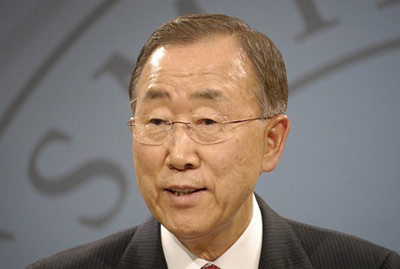Ban Ki-moon backs HFC reductions
May 26, 2015

United Nations secretary general Ban Ki-moon has backed efforts to reduce HFC emissions, describing action as being essential to combat climate change.
Speaking at the opening of an assembly of the Climate and Clean Air Coalition (CCAC) in Geneva last week, Ban Ki-moon said: “Steps to address short-lived climate pollutants are now seen as an essential complement of the aggressive mitigation actions needed to combat climate change.”
“These efforts will protect the climate, our environment and improve the health and lives of people across the globe,” he added.
The CCAC High Level Assembly took place on the margins of the 68th World Health Assembly to bring attention to the links between air pollution, human health and climate change. Tine Sundtoft, Norway’s minister for climate and environment and co-chair of the Assembly, said that reducing short-lived climate pollutants (SLCPs), like black carbon, methane, tropospheric ozone and HFCs, provided multiple benefits for health and climate.
The Climate and Clean Air Coalition is a voluntary global partnership of governments, intergovernmental organisations, businesses and scientific institutions committed to the reduction of short lived climate pollutants.
A key result of the High Level Assembly was the passing of a strategic plan to scale up the CCAC’s work over the next five years. A task force, chaired by the United States looked at ways to advance policies, regulations, programmes, and practices to rapidly deliver substantial reductions in harmful climate and air pollutants in the short term, while transforming sectors so they continue to deliver results into the future.
The plan calls for short-lived climate pollutants to be put on the policy map and become a priority for governments, the private sector and civil society around the world. It also called for more peer to peer support between partners to share expertise and provide technical assistance where needed.
The CCAC partners supported a statement on HFCs introduced by Canada, noting their support for a phase down of HFCs under the Montreal Protocol and the importance of discussing these issues at the Protocol’s upcoming meeting in July.
The Assembly expressed its support of the HFC initiative’s activities to improve knowledge and highlight the range of climate friendly alternatives available. The CCAC said it would further promote public procurement of climate-friendly alternatives to high GWP HFCs, responsible refrigerant management practices and approaches, and the greening of food cold chain through low-GWP technologies and reducing food waste.


